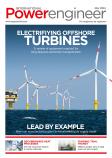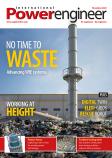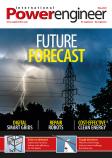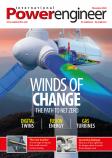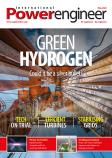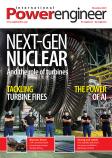Nigel Blackaby discusses how Germany will fare without a new generation of nuclear power plants and the phasing out of the existing fleet, coupled with growing opposition to coal-fired generation, and analyses the steps that Germany will need to take to reach a fully integrated energy future.
In the wake of Fukushima disaster, energy experts now agree that securing Europe's future electricity supply will require an increasing convergence between existing fossil fuel sources and the fast-growing renewable generation sector. Nowhere is this fusing of interests required more than in Germany, in the light of the government's decision to phase out all nuclear power by 2022. The case for integration is now compelling and is something that an increasing number of countries are going to have to consider.
The current debate among those in the power industry is how Germany will fare without a new generation of nuclear power plants and the phasing out of the existing fleet, coupled with growing opposition to coal-fired generation. Many in the industry feel that the technology most likely to benefit in the short term is gas fired generation, but that the recent nuclear-free policy offers Germany a chance to be a pioneer in a new energy system, which matches a substantial green energy sector with a conventional generation base. Chancellor Merkel has already said that her country's 'fundamental' rethink of energy policy could set an example for other countries. If this is to be the case, significant new infrastructure will be required, not only in the area of power generation, but also in the transmission grid and the way that the grid interacts with these power sources.
Germany's offshore wind potential is large but its prime location is a long way from the main load centres. In addition, protest groups are already expressing their fears that the unspoiled, forested centre of the country will become a north-south 'energie autobahn' of pylons and high-voltage cables.[Page Break]
However, renewable energy groups in Germany such as the BDEW Association remain optimistic. They say that Germany is unlikely to experience blackouts in the next decade as the country currently enjoys a surplus energy capacity, has a good potential for energy efficiency savings and has strong border interconnections in place. On the other hand, RWE chief executive Jürgen Grossman has argued that, until low-carbon energy sources improve, Germany will struggle to meet its greenhouse gas reduction targets in the absence of nuclear power. His colleague Volker Beckers, Group CEO of RWE nPower said recently that "Germany has a romantic view of energy policy", and described this policy as misplaced and damaging.
Whatever your position on this issue, it is clear that Germany's power sector will experience a period of change and that traditional power sources will need to be integrated with renewable sources such as wind and solar to create a smart energy solution. The decision on nuclear power may be the catalyst needed to jump-start this revolution.[Page Break]
If the lights are to be kept on at all times, the smart energy system of the future needs to provide the necessary flexibility to allow new low or zero carbon power generation sources to be added to the grid. Technology development is being geared toward providing flexible solutions that enable integration of variable renewables and conventional power and these solutions are now being brought to market. Technologies addressing the challenge of integration include flexible gas turbines, fast-ramping gas and diesel engines, hybrid power plant designs, energy storage, new HVDC designs and smart grid technology.
At a strategic level, Europe's utility companies and equipment suppliers need to communicate and collaborate in order to design the integrated power system of the future. The renewable power generation market now recognises the need for close co-operation and integration with the mainstream as green power becomes big business for the major power generating companies across Europe.[Page Break]
European energy policy is also being driven by a need for further integration between national energy policies, neighbouring grid systems, future R & D efforts and long-term strategy. A pragmatic approach is going to be vital. While a zero-carbon, 100 per cent renewable power grid is the dream for many, for the foreseeable future the power sector in Europe is going to have to work with the sources it has available. The time has come for the all the major actors to join forces in order to deliver a cleaner, reliable and affordable electricity supply for future years.
Nigel Blackaby, Chairman of the Advisory Board, POWER-GEN Europe 2012 This year POWER-GEN is being held at the KolnMesse in Cologne Germany from the 12-14th June 2012. www.powergeneurope.com.













